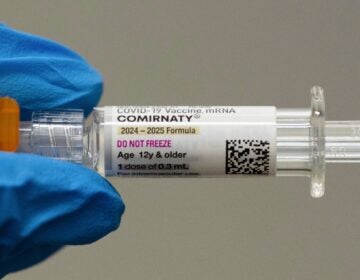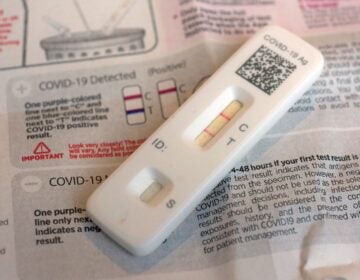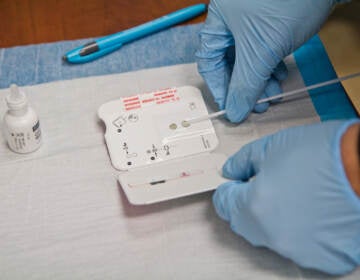Vaccine clinic for Philly immigrant communities helps bridge gaps in COVID-19 care
Friday was the first of three scheduled first-dose opportunities to take place in Center City. All vaccinations are by appointment.
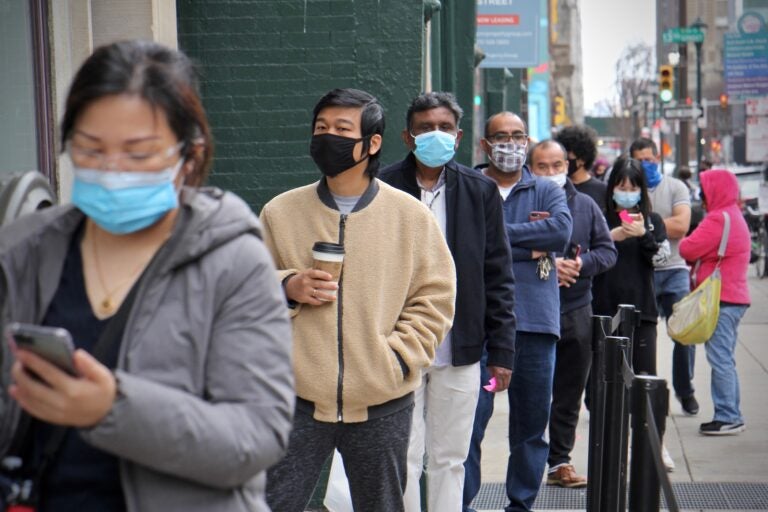
A line forms outside the Center for Architecture and Design on Arch Street where Nationalities Service Center was holding a COVID-19 vaccination clinic. (Emma Lee/WHYY)
Ask us about COVID-19: What questions do you have about the coronavirus and vaccines?
For Lidia Texis, it’s for her kids, who have health conditions. For Jamal Aimry, it’s a step toward visiting his parents, who live in Morocco. For Dulce Maria Lopez Bonilla, it’s for peace of mind when the restaurant worker has customers who won’t wear a mask.
They are some of the more than 200 people who received the first dose of Pfizer’s COVID-19 vaccine in Philadelphia on Friday through a new partnership between immigrant-serving community organizations and Sunray Pharmacy. The Philadelphia Department of Health facilitated the arrangement.
The partnership is “a different way to get vaccines to groups that were sort of being underrepresented in the first group of people getting the vaccines,” said Steven Larín, deputy director of Nationalities Service Center.
At the start of the pandemic, the city lagged in providing translated public health information in real time, exposing one of the many gaps in access that the coronavirus pandemic has widened.
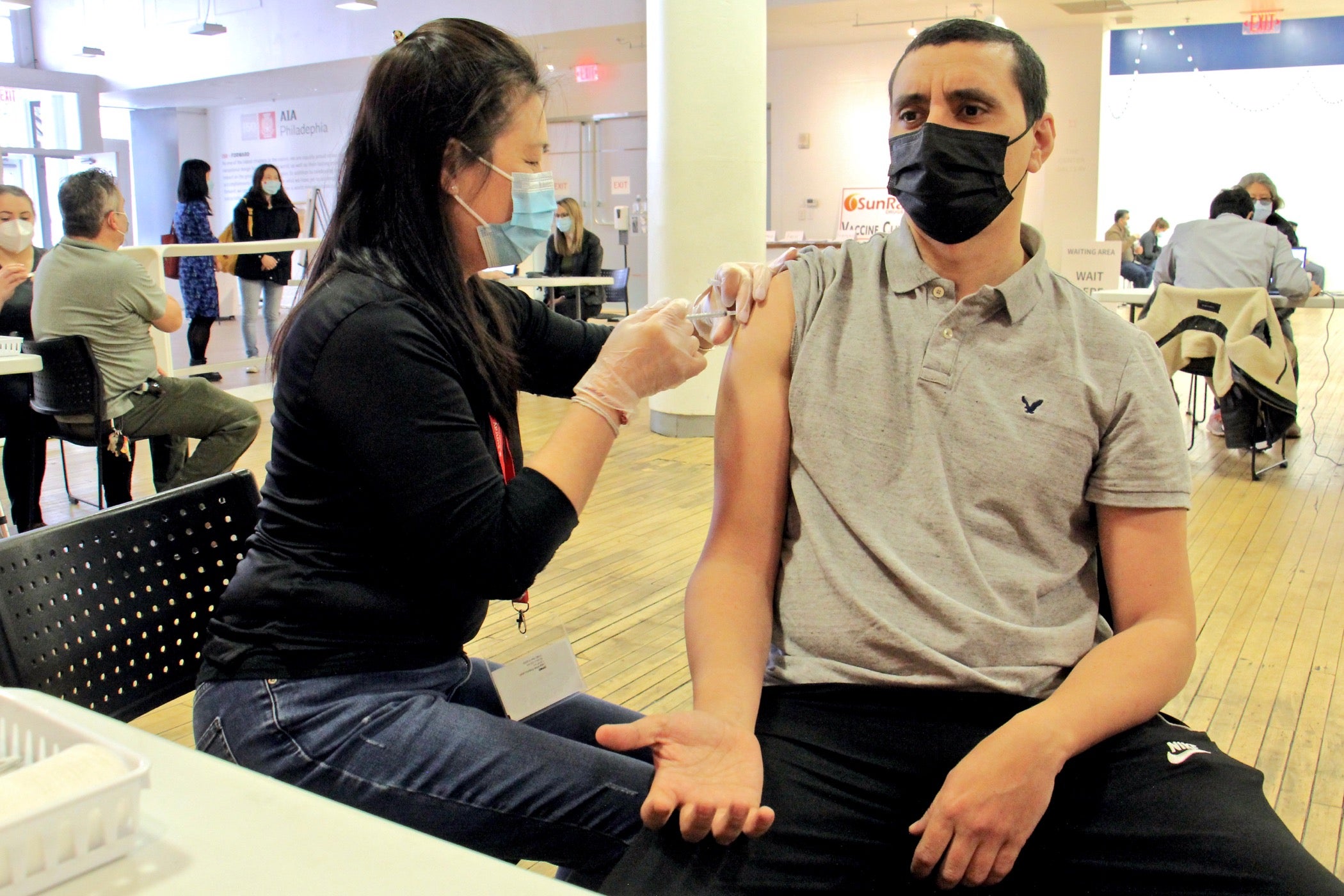
As vaccines started flowing, immigrant-led community organizations and even individual people started acting as connectors between people isolated by language or lack of computer access, and the life-saving shots.
Immigrants make up about 8.5% of the frontline workforce in Pennsylvania, according to the Pennsylvania Budget and Policy Center, though the group said that is likely an undercount.
Pau Khai, a refugee from Myanmar, works in an Amazon fulfillment center in New Jersey. With his wife at home taking care of their two kids, he said he has been fearful of getting sick and being unable to support his family.
“I’m the only person working, [so] if I feel sick or whatever, it means — the rest of the rent or the auto payment — I am thinking about it,” he said. After getting his first dose, he said he hoped it would start to bring a sense of relief.
Fatima El Ansari, a cashier at Pita Chip, a local Middle Eastern chain started by two men who fled Syria in the 1980s, also got the jab Friday. She said she can’t wait for life to be “back like to normal.”
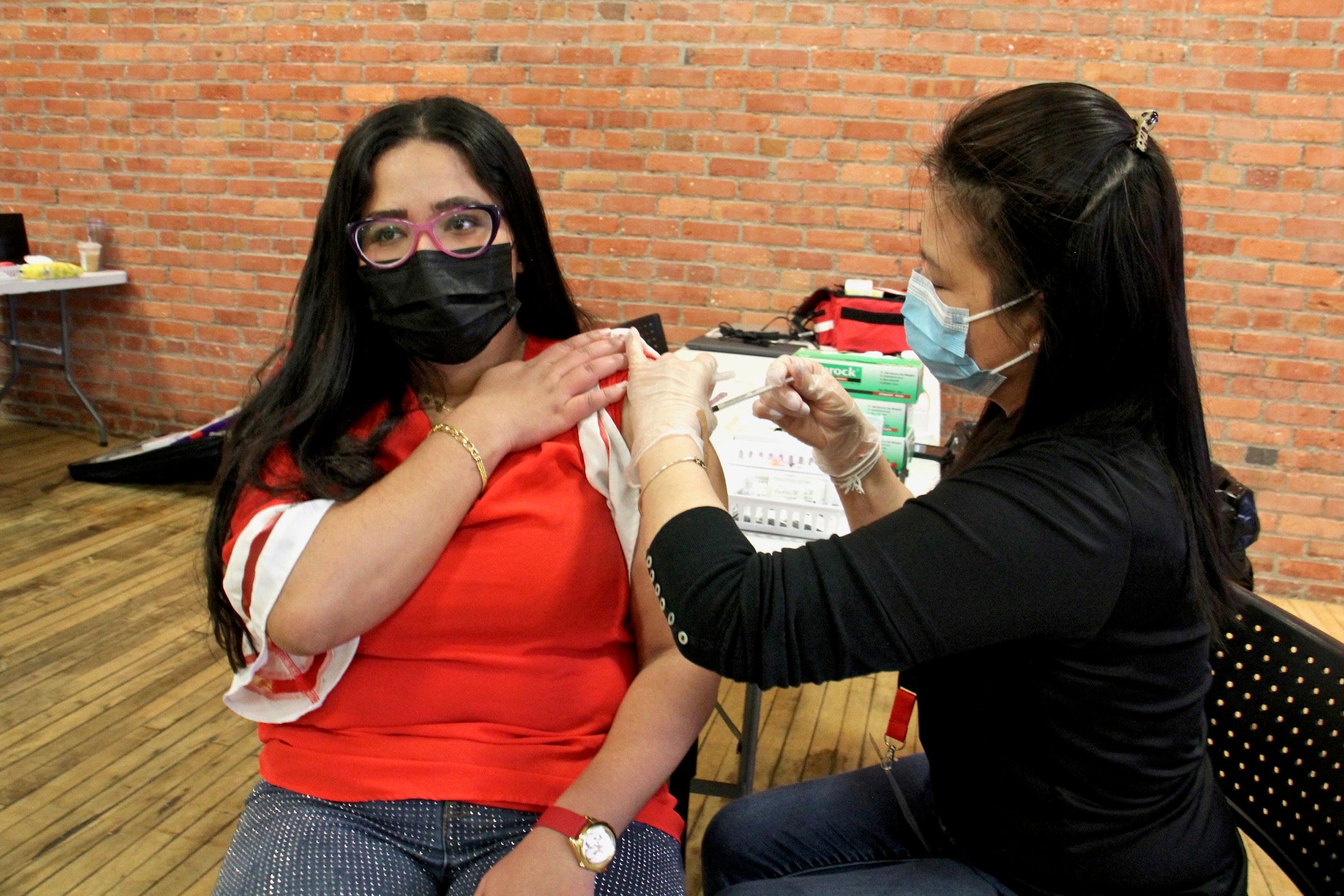
The clinic is the first of three scheduled first-dose opportunities to take place at the Nationalities Service Center office in Center City. All vaccinations are by appointment, and only immigrant residents who fall into eligible priority categories can sign up. Community groups including SEAMAAC, New Sanctuary Movement, Africom, HIAS, Juntos, Asian Americans United connected their members to the clinic.
Speakers of more than 25 languages registered for Friday’s doses, showing the range of interpretation services needed to help vaccinate city residents. About a quarter of Philadelphians speak a language besides English at home, according to the Pew Charitable Trusts.
The community groups running the clinic said part of their job is also to dispel false information circulating about the vaccine.
“There is a tradition in my community of not taking vaccines. Even the flu shot, people are not wanting to take it,” said Wei Chen, civic engagement coordinator with Asian Americans United.
His group has been making health experts available for those with questions. To reach Chinese-Americans where they gather, the group uses WeChat to disseminate accurate information and promote vaccine registration. Chen was also on hand to interpret in Mandarin and Fuzhou dialect for people coming to the clinic.
More than one out of every 10 city residents was born outside of the United States, but the Philadelphia Department of Health does not ask for nor does it track immigration status as a part of its vaccination metrics, said spokesperson James Garrow.
However, it does track racial demographics, which show some large disparities in who has been able to get the shots. City data shows around 5% of Hispanic residents have received a coronavirus vaccine, though this group makes up 15% of the overall population, according to the U.S. Census Bureau. In a city that is more than 40% Black, only about 20% of vaccines have gone to them.
Philadelphia has expanded language access at some of its vaccination sites, and the vaccine interest form is now available in English, Spanish, Simplified Chinese, Vietnamese, and French.
Dulce Maria Lopez Bonilla said she expressed interest in the vaccine when she heard that JUNTOS, a community-led, Latinx immigrant organization in South Philadelphia, was trying to find qualifying workers for vaccine appointments. Lopez Bonilla works in a restaurant, and food workers are eligible under the 1B category.
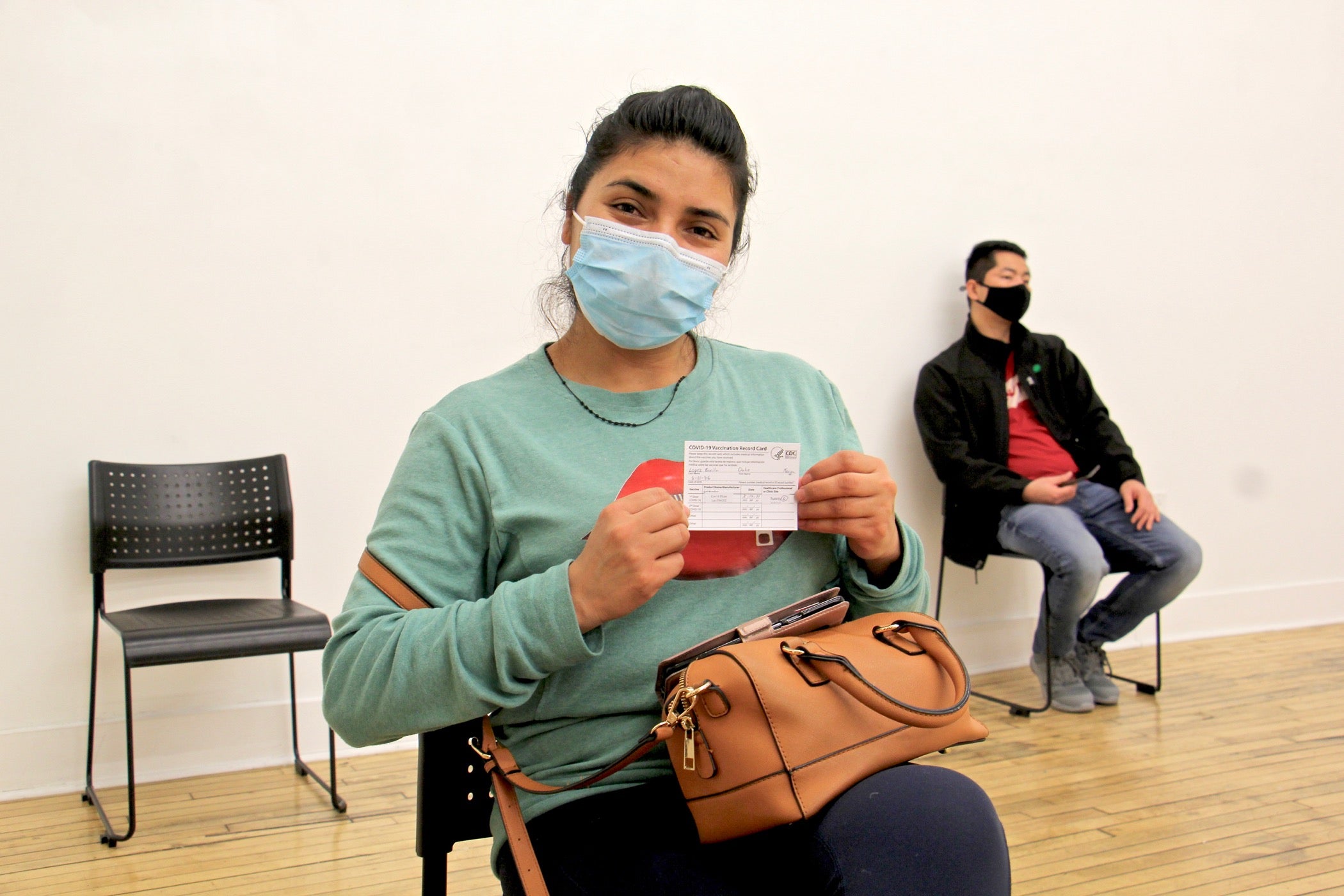
When she found out she would be getting the appointment the very next day, she felt “so happy.”
“If I get like any of the symptoms it doesn’t matter,” she said of potential mild vaccine side effects. “I’m so happy.”
 WHYY is one of over 20 news organizations producing Broke in Philly, a collaborative reporting project on solutions to poverty and the city’s push towards economic justice. Follow us at @BrokeInPhilly.
WHYY is one of over 20 news organizations producing Broke in Philly, a collaborative reporting project on solutions to poverty and the city’s push towards economic justice. Follow us at @BrokeInPhilly.

Get daily updates from WHYY News!
WHYY is your source for fact-based, in-depth journalism and information. As a nonprofit organization, we rely on financial support from readers like you. Please give today.


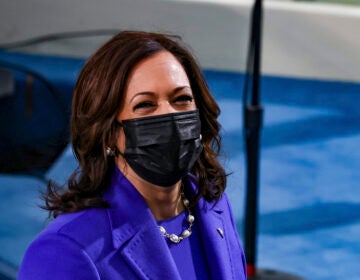
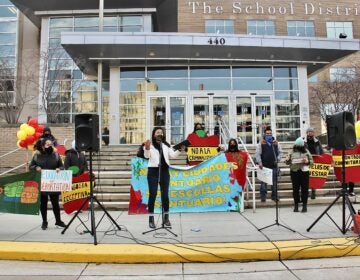
![CoronavirusPandemic_1024x512[1]](https://whyy.org/wp-content/uploads/2020/03/CoronavirusPandemic_1024x5121-300x150.jpg)

